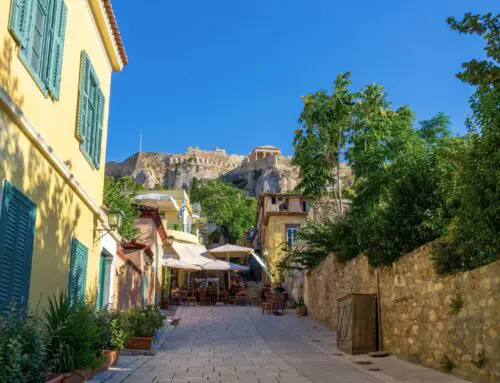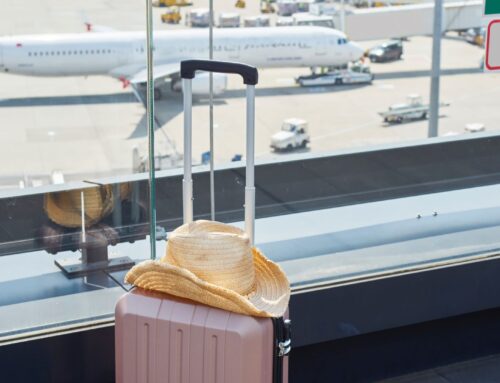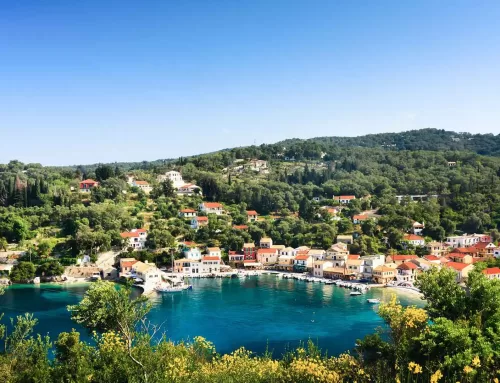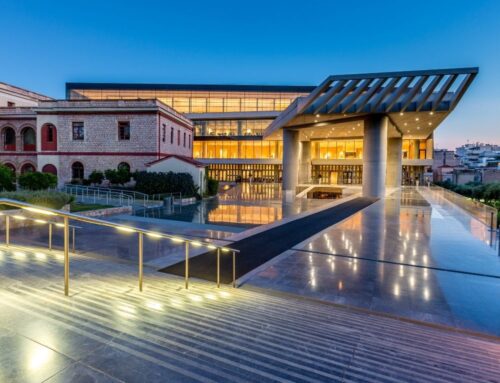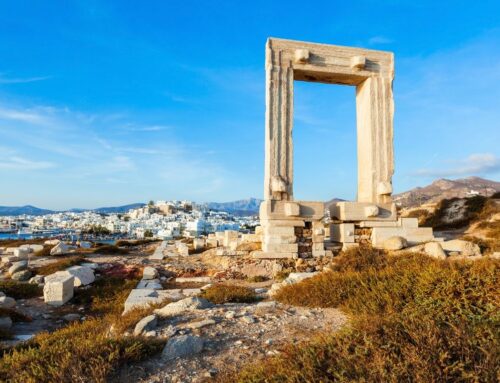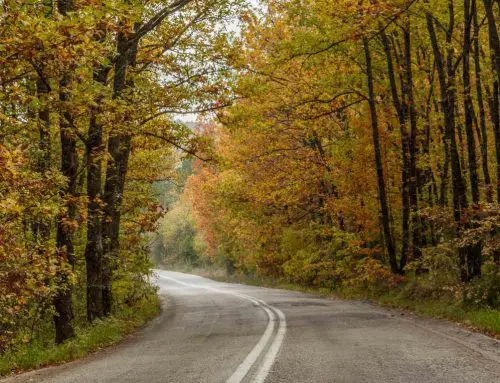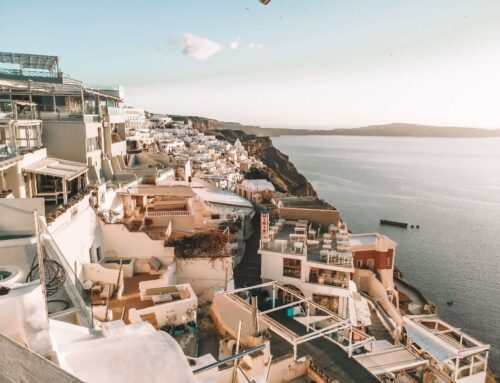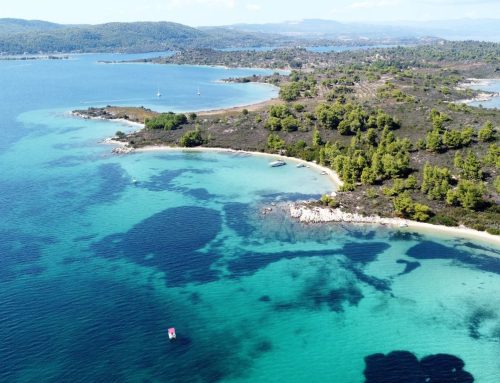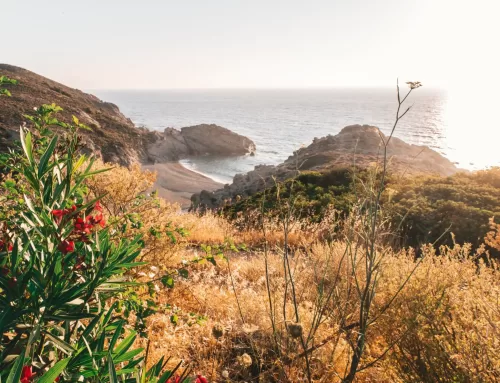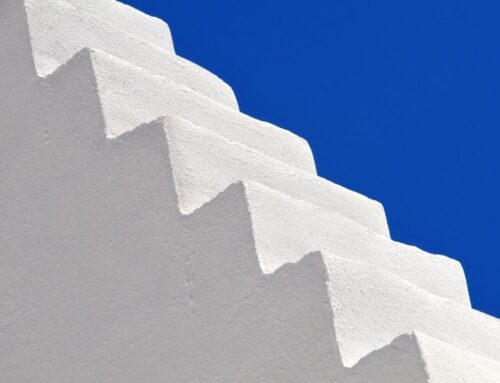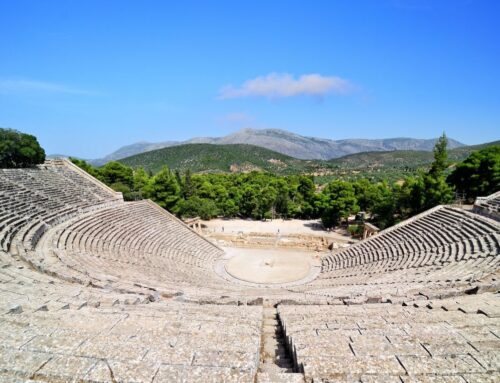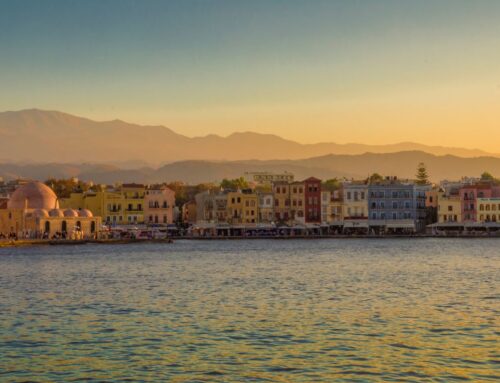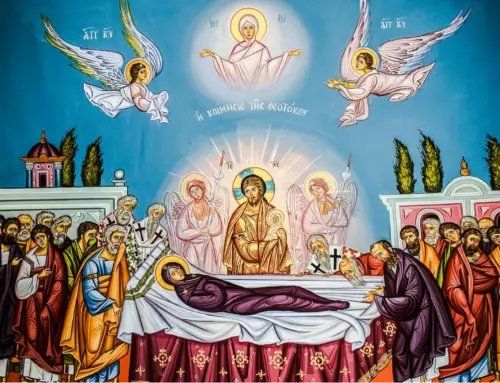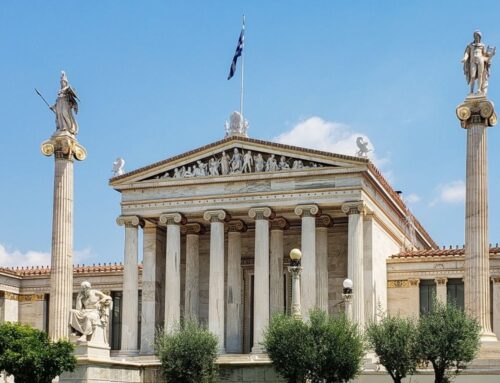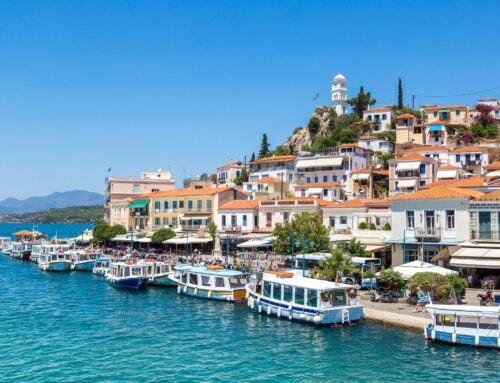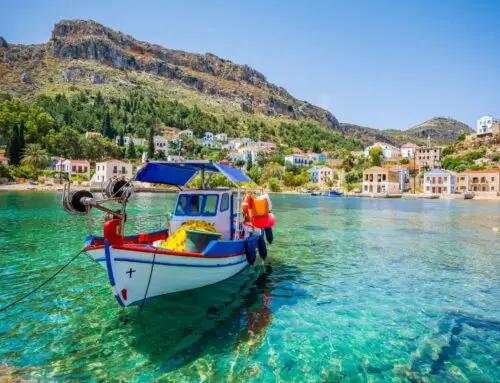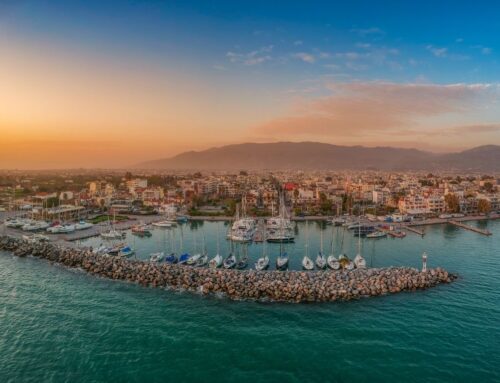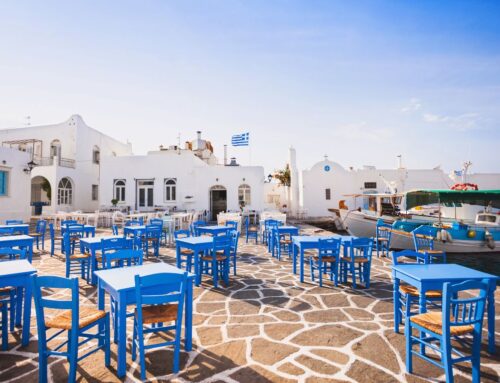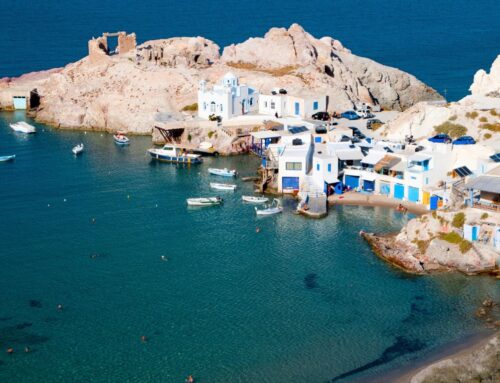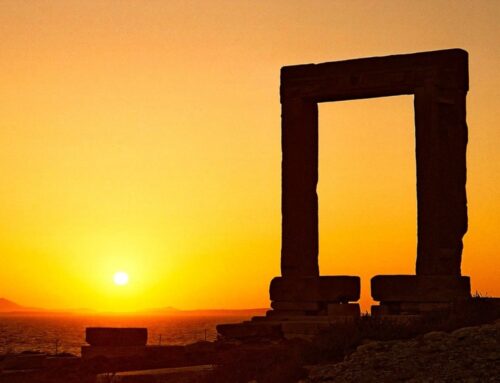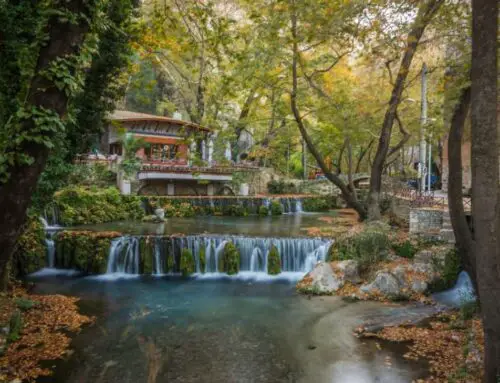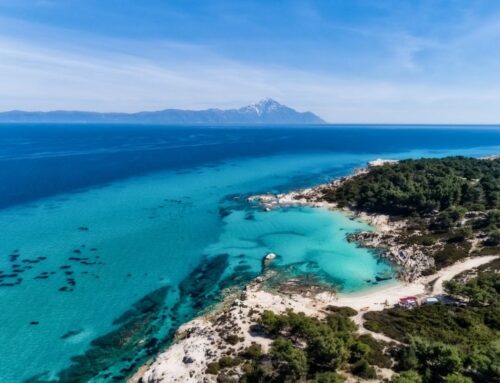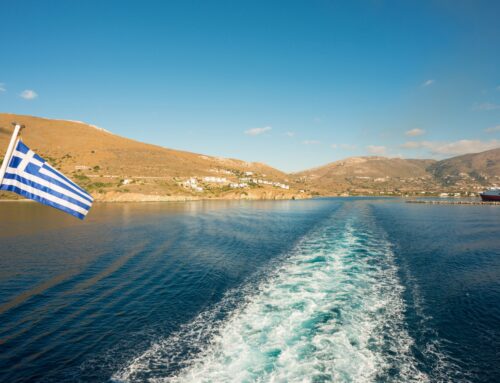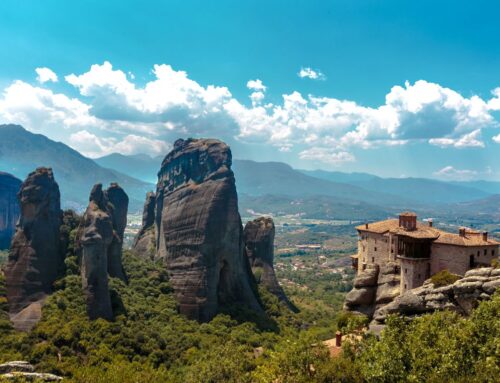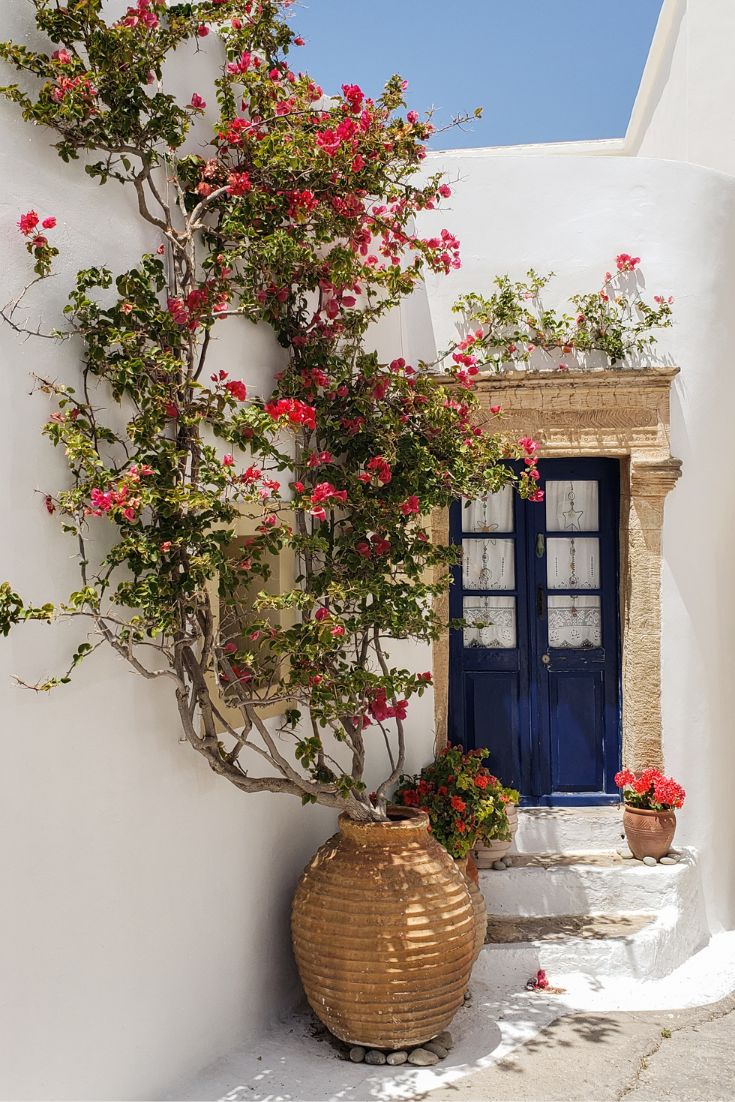5 Olympian ‘Gods’ And Their Greek Island
5 Olympian ‘Gods’ And Their Greek Island
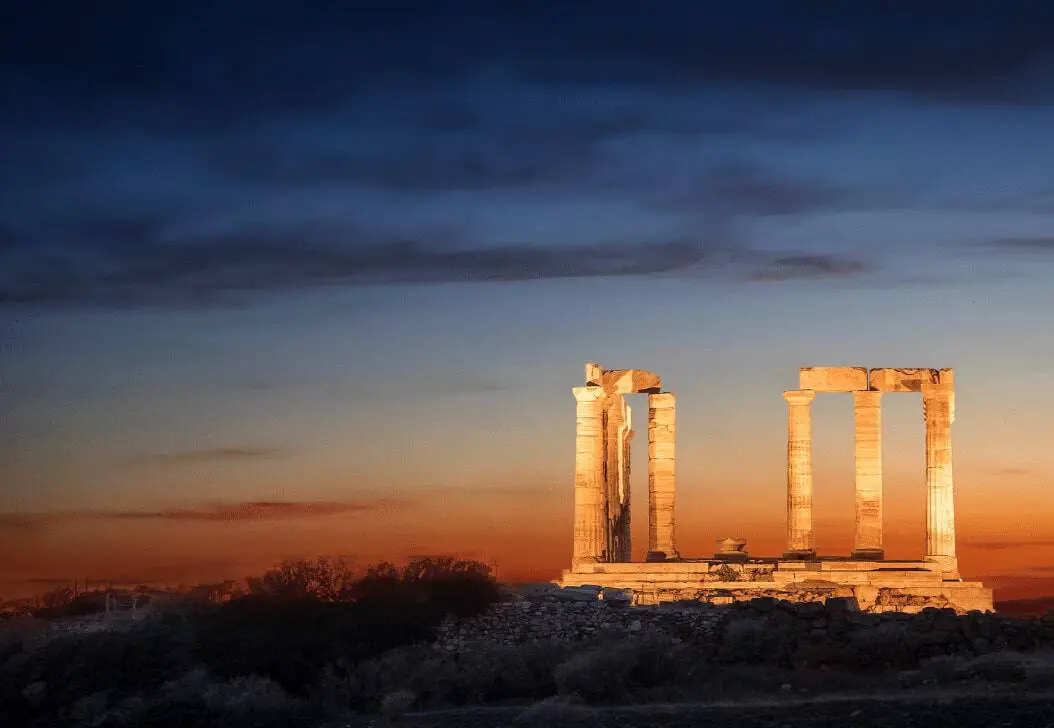
☞ Table of Contents:
Greek mythology is many things… weird, interesting, confusing and insightful. Legends and myths, epic poems and heroes carry messages and values of a time we no longer have access to. There are many ways to learn about mythology and the 12 Olympian Gods but here we will focus on just a few of them and link them to their island of origin. An easy way to learn more about both the Olympian gods as well as the beauty of these islands.
First a quick recap.
The twelve Olympian ‘Gods’ of Mount Olympus, ruled the earth after Zeus defeated the Titans in what we call Titanomachy or simply Titan War. All of them were descendants of Uranus (Sky) and Gaia (Earth), son and mother. Their union created not only twelve Titans but the three Cyclops and the Hundred-Handed Ones. The last ones were giants of immense strength and a plethora of hands!
Uranus was a cruel father that feared losing power from his children. He sentenced them to live in Tartarus, the dungeon abyss of ancient mythology where souls wait to be judged for their sins. To save her children, Gaia devised a plan of revenge and helped her son, Cronus, attack his father with a hook. Cronus succeeded in castrating his father but ultimately fared no better than him. Having heard a prophecy that he too would be overthrown by his own children, he imprisoned his siblings to Tartarus once more and developed a habit of swallowing his own children. This time it was Rhea, his wife, that acted to save her children, giving Cronus a rock to swallow instead of a newborn baby, and thus protecting Zeus from being eaten.
It was Zeus that years later after reaching adulthood, safely hidden in the mountains of Crete, fought against his father, released his brothers and sisters from his stomach and led them to war against Cronus.
Kythira Island and Aphrodite
The first of the 12 Olympian gods was actually Aphrodite, mistress of the sea and patroness of love, desire and fertility. Her entrance into the world is as bizarre as mythology can offer. A combination of the Aegean foam and sperm from the cut of genitals of Uranus, which Cronus cut off when he defeated him.
The island of Kythira has retained its bond to the goddess of beauty. Homer mentions Kythira in connection to the goddess in his Illiad and so does Herodotus and Aristotle later on. Still some accounts have the name deriving from the goddess herself and from the word “Keftho” meaning to hide. Different legends connect Aphrodite to the island of Cyprus. Not surprisingly, it seems that the goddess of beauty had many admirers.
It is believed that the eldest temple of Aphrodite was once found on the island but for now visitors to this small hidden away paradise have other things to look forward to. Namely, a spot in the Aegean full of history, the touch of civilizations going back thousands of years, peace, relaxation and an unmistakable aura of love.
Ikaria Island and Dionysus
When you are still at school, Dionysos is referred to as the God of wine and grape harvest. The list goes on to include so much more, however, most of which is reasonably not mentioned to a group of giggly preschoolers.
Dionysos stood for rebellion, ecstasy, frenzy and sexual madness. He was the original party animal of Mount Olympus and often a favourite god amongst the people. The island of Ikaria is often regarded as the birthplace of Dionysos even though both the name of Ikaria and the origin of Dionysos are linked to many more different places. In recent years, Ikaria is known as one of the Blue Zones. A place where clocks cease to matter, stress is washed away and people are friendly, hardworking and live way past the one hundred birthday milestone. The key to longevity has often been investigated but if I may, I will offer that the biggest contributing factor to a long and healthy life is a state of mind rather than something tangible.
People in Ikaria know how to focus on what matters, are unperturbed with trivial modern issues and at the end of a hardworking day spent in the rugged fields of the island, they know how to slow down and have fun over a few alcoholic beverages. Maybe that is why Dionysus continues to be connected with this little spot of a stress-free life.
The festivals of Ikaria taking place from May till August are a chance for visitors to experience the ideal of celebration, unity and connection. No stranger escapes the pull of the dance, whether they know the steps or not. And time is nothing but a concept when the music starts to play at daylight and continues until there is no one standing.
Lemnos Island and Hephaestus
Hephaestus, like most Olympian gods, had human-like qualities that matched the struggles and experiences of the people at the time. Protector of craftsmen, metalworkers and carpenters, Hephaestus represents fire, volcanoes, art and architecture but also outcasts and undesirables.
His mother, Hera the Queen of gods. His father, Zeus, god of thunder and lightning. From their union a baby so disfigured and unsightly that led his mother to throw him from the top of Mount Olympus.
The story takes quite a few turns after this but all agree that at some stage Hephaestus makes his way to the island of Lemnos, where the people find him, ill-formed and unable to walk properly. The island of Lemnos fits with the location of a mythical forge where Hephaestus created items of immense beauty and worked on his metallurgy. Mostly barren and rugged, peculiar formations of volcanic rock cover vast areas of the island. A miniature desert can also be found on the north of Lemnos, adding another layer of depth and mystery to the home of Hephaestus.
It is worth mentioning that the story of Hephaestus is not all sad. While he is known as the ugly god, his wife ended up being Aphrodite, goddess of beauty.
Delos Island and Apollo
In the instance of this pair, god and island are closely linked together in more ways than once. The existence of the island is actually attributed to the birth of Apollo and his twin sister Artemis.
Their mother, Leto, is a representation of motherhood. The struggle of a parent and the protector of children. Leto coupled with Zeus and soon became pregnant much to the dislike of goddess Hera who stricken by jealously cursed Leto to find no earthly haven. After that, Leto was not welcome anywhere she went and she struggled to find a place to give birth. Zeus came into her rescue and made a deal with his brother Poseidon, god of the high seas. A small island then emerged in the Aegean, bearing the name “Delos” or “visible” where Leto was able to safely have her children.
Delos has a strict no visitors after dark policy and nobody is allowed to give birth or die on the island. A barren place measuring less than 6 km in length, Delos offers a chance to explore a place left completely undisturbed since the early centuries AD. The museum, built originally in 1904 and the surrounding archaeological area is worth exploring in full. Day trips leave Mykonos, the closest island, as well as Paros, Naxos or Ios. Timetables can change during the summer months so it is advisable to plan ahead.
Crete and Zeus
As mentioned at the beginning, Zeus was one of six children. He was also the strongest of them all that defeated their father after his mother, Rhea, concealed him from Cronus and gave him a rock instead of the infant to swallow.
From then the story continues in the mountains of Crete. Baby Zeus was born and raised in a cave, cared for by nymphs and the goat Amalthea that provided him with milk and honey. The exact location of the cave is still disputed with two possible options being the Dicteon and Ideon caves.
Dicteon is a deep cave in East Crete, with impressive stalagmite and stalactite formations. Findings from the cave confirm that it was in use regularly, with offerings from worshipers such as olive oil, milk, honey and animal sacrifices having been discovered. Ideon cave is found on the highest mountain of Crete in the centre of the island. It is equally important in terms of archaeological value and significance but lacks the grandeur of Dicteon. As a result, far less people visit this location.
I don’t know what led to the creation of the legend and why Crete was chosen as the place Zeus would grow up in. But as a casual observer, it would be worth mentioning that Crete is a place worthy of raising the god of all gods. It is unapologetically proud, with tales of strong warriors and brave soldiers. In its land, civilizations flourished, like the mythical kingdom of Minoas and his golden palace.
To this day, there is something exceptionally different about the Cretan way of life, from its food to the music and dance, all the way to the Cretan people.
These are the Greek islands with a connection to an Olympian God. There are of course many more islands for you to discover, whether you are a fan of beaches, culture and history or romance. There are still people that worship the Olympian Gods within Greece, however, the vast majority converted to Christianity when Saint Paul arrived in the country all the way back in 49 AD. Since then, Greece has been a predominantly Orthodox Christian nation, as is evident from customs and traditions.
Want to travel to the Greek islands of the Olympian Gods?
Our passion is to showcase the best and most authentic side of Greece. From small traditional villages to the intimate side of tourist favourites like Mykonos and Santorini, the team of Definitely Greece is committed to creating personalized vacation experiences for you and your loved ones.
Athens – Mykonos – Santorini – Crete – Our most popular itinerary that explores the jewels of the ancient world and beauty of the Aegean. You will meet the people, taste the flavours and explore hidden paradises, the way you have always dreamed of.
Women Tours in Kythira – Our women only tours in specific locations around the country are about friendship, culture and relaxation. A memorable five day trip to the island of love, for lovers of authentic, local experiences.
3 Day Itinerary For Mykonos – How to explore the island of Mykonos in 3 days. Activities, things to do, where to stay, and what to keep in mind before booking your trip.
*Disclaimer: This page includes affiliate links. If you decide to book something through one of them, I might get a little bonus, but it won't cost you anything extra.*

